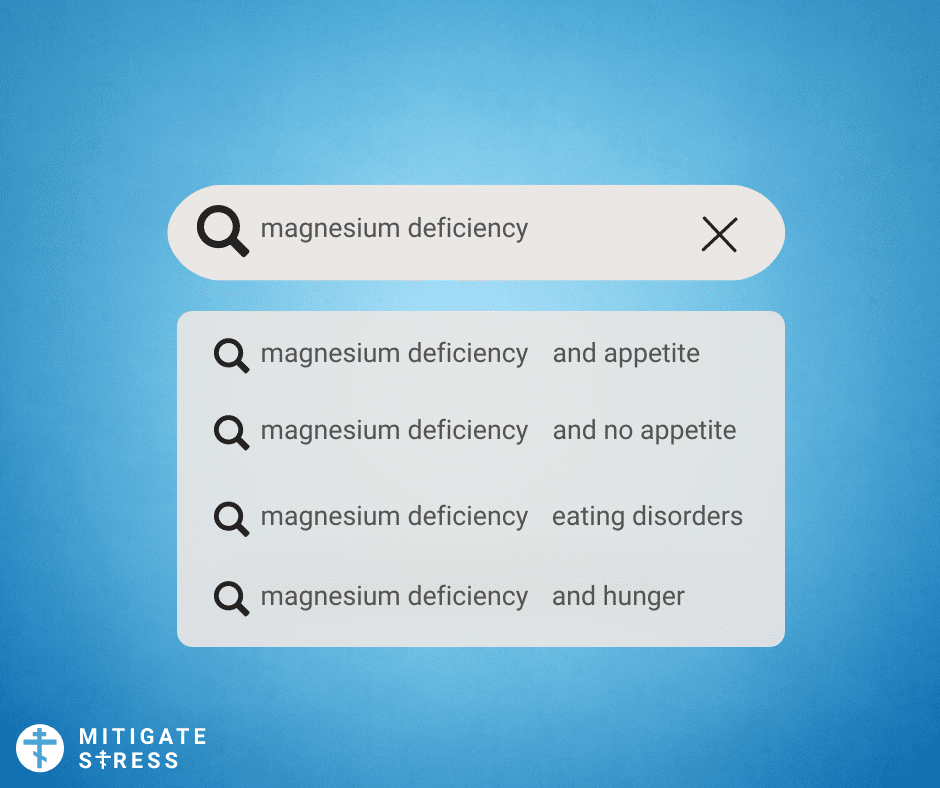Understanding the role of essential nutrients in our body is paramount for maintaining optimal health. One such vital nutrient is magnesium, a mineral that aids in hundreds of biochemical reactions in our body. However, insufficient intake or absorption of this mineral can lead to magnesium deficiency, which manifests in various symptoms, including loss of appetite1,2. This article delves into the importance of magnesium, explores the connection between magnesium deficiency and appetite loss, and highlights findings from scientific journals and articles.
The Role of Magnesium in Human Health
Magnesium plays a crucial role in many bodily functions. It contributes to bone health, enables energy production, assists in muscle movements, and helps regulate the nervous system3. Despite its importance, magnesium deficiency is not uncommon and often goes unnoticed until symptoms start to appear.
Magnesium Deficiency and Loss of Appetite
Evidence from scientific research suggests a strong link between magnesium deficiency and loss of appetite4,5. According to these studies, individuals with insufficient magnesium levels often experience decreased hunger. This could be due to the effect of magnesium on hypothalamic regulation – an area of the brain that plays a key role in controlling appetite6.
Recognizing Magnesium Deficiency
Apart from loss of appetite, other symptoms associated with magnesium deficiency include lethargy, nausea, vomiting, fatigue, and weakness7. More pronounced deficiency presents with more severe symptoms, such as numbness, tingling, muscle cramps, seizures, personality changes, and abnormal heart rhythms8.
However, recognizing magnesium deficiency can be challenging as the symptoms are non-specific and often overlap with other conditions. Therefore, it’s important to consult a healthcare provider if you suspect a deficiency.
Ensuring Adequate Magnesium Intake
Including magnesium-rich foods in your diet is a proactive step towards preventing deficiency. Foods high in magnesium include dairy, green leafy vegetables, whole grains, nuts, seeds, and legumes9.
For some, dietary changes may not be enough, and supplementation may be necessary. That’s why we have created our magnesium bicarbonate products – Master Mineral Drink, MMD Travel, and Magnesium Bath, and our topical Magnesium Oil Spray to give the best, bioavailable and absorbable magnesium on the market. However, it is crucial to discuss with a healthcare provider before starting any supplementation regimen, as excessive magnesium can also have adverse effects.
Conclusion
Magnesium is an essential nutrient that our bodies need to function optimally. Its deficiency can lead to several symptoms, including loss of appetite. By understanding the signs of deficiency and ensuring adequate intake, we can safeguard our health and well-being.
Remember, if you suspect a magnesium deficiency, consult with a healthcare provider for an accurate diagnosis and treatment plan.
Footnotes
- ScienceDirect: Rapid recovery from major depression using magnesium treatment
- Google Books: Magnesium in human health and disease
- ScienceDirect: Magnesium for treatment-resistant depression: a review and hypothesis
- MDPI: Magnesium: biochemistry, nutrition, detection, and social impact of diseases linked to its deficiency
- CAB Direct: Studies on magnesium deficiency in animals. 1. Symptomatology resulting from magnesium deprivation
- ScienceDirect: Magnesium deficiency induces anxiety and HPA axis dysregulation: modulation by therapeutic drug treatment
- MDPI: Magnesium in prevention and therapy
- MDPI: Myth or reality—transdermal magnesium?
- Taylor & Francis Online: Combating COVID-19 and building immune resilience: a potential role for magnesium nutrition?






0 Comments